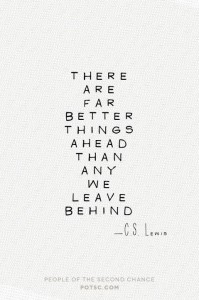If you work in the field of Higher Ed or have ever transferred from one college to another, you are probably familiar with the term ‘transfer shock’. Transfer shock refers to the uncertainty, anxiety, and challenges experienced while transitioning from an environment you’ve grown comfortable and successful in to an environment you must suddenly adjust to all over again. I think I’m currently experiencing something I can only refer to as Pre-Grad Shock!
I have spent the past two and a half years at Saint Rose, the prior two years at SUNY IT, and two years before that at HCCC, not to mention twelve years before that in K-12. I hardly know of life outside of school. Beyond that, I have always taken academics seriously and set aside most other aspects of my life for my academics and work to take priority.
Without school, I don’t know who I am, who I will be. Education provides a pretty clear road map over a set period of time, and it’s easy to get into that routine– take these classes now so I can take these other classes next semester, register and repeat– no need to worry about what comes after that, not just yet. I was so engrossed all semester in completing my course and internship requirements that I didn’t put forth too much thought and energy into what would come after (mostly to preserve sanity). Driving home from internship today, though, I was blindsided by a sudden fear of… what on Earth comes next?
In the C.S.S.A. program, we learn about student transitions. Specifically we often talk about Schlossberg’s Theory of Transition. Through the lens of this theory, there are multiple types of transitions (anticipated, unanticipated, non-events) in which four factors come into play: situation (what’s happening?), self (what personal characteristics make up you as an individual?), support (who’s there for you?) and strategies (how do you cope?).
But just because you know and understand student transition theory doesn’t mean it’s any easier to navigate your own – unless you put it to use. It gives you a tool to assess yourself and take control of your transition. When considering yourself through the lens of transition theory:
- Remember what your strengths are, but be cognizant of your weaknesses.
- Step back and think about the situation, and what aspects you have control over.
- Remember who is there for you, and ask them for help at this difficult time. Many of your friends are likely going through similar challenges, so endure it together.
- If your current coping strategies aren’t working, seek out new ones to try.
One thing I know is that, like the transition from high school to college, only I can be truly responsible for what is to come and how I adapt to a new lifestyle. It will take restructuring my time; reflecting on skills I’ve used in the past and trying new ones as I enter the full-time workforce; and facing my fears. I can take comfort in knowing that most likely, in six months from now, I’ll look back as I often do and realize…
I had nothing to worry about. 🙂





Comments posted on this site are held in moderation until approved by a site administrator. Vulgar, profane, obscene, offensive terms or personal attacks will not be tolerated.